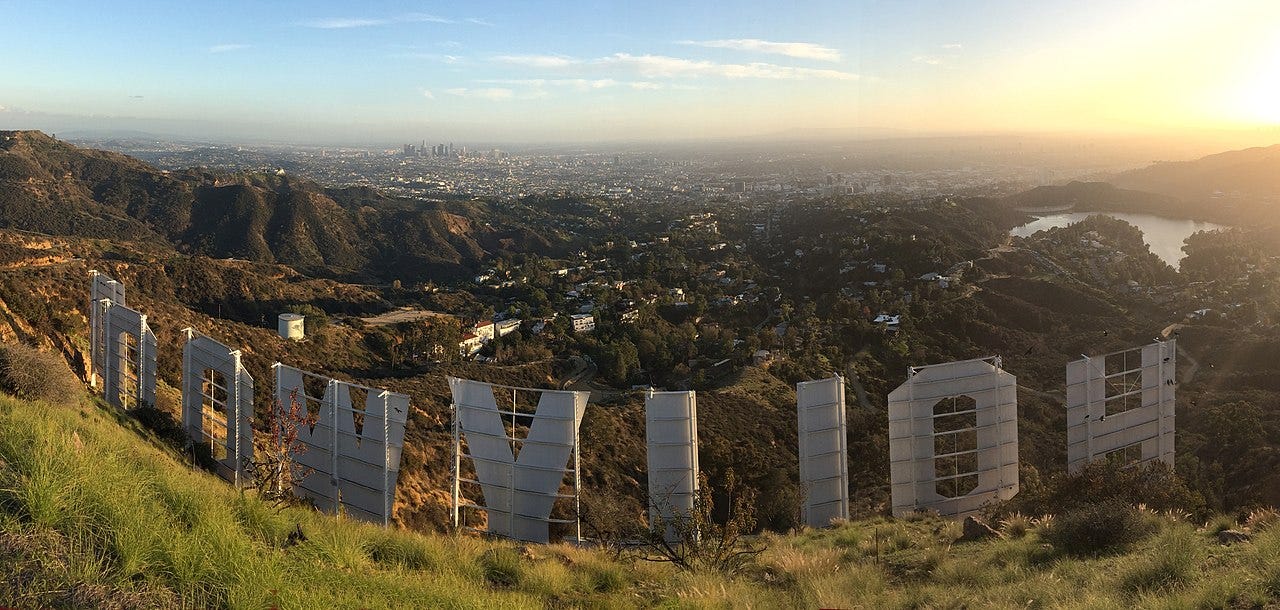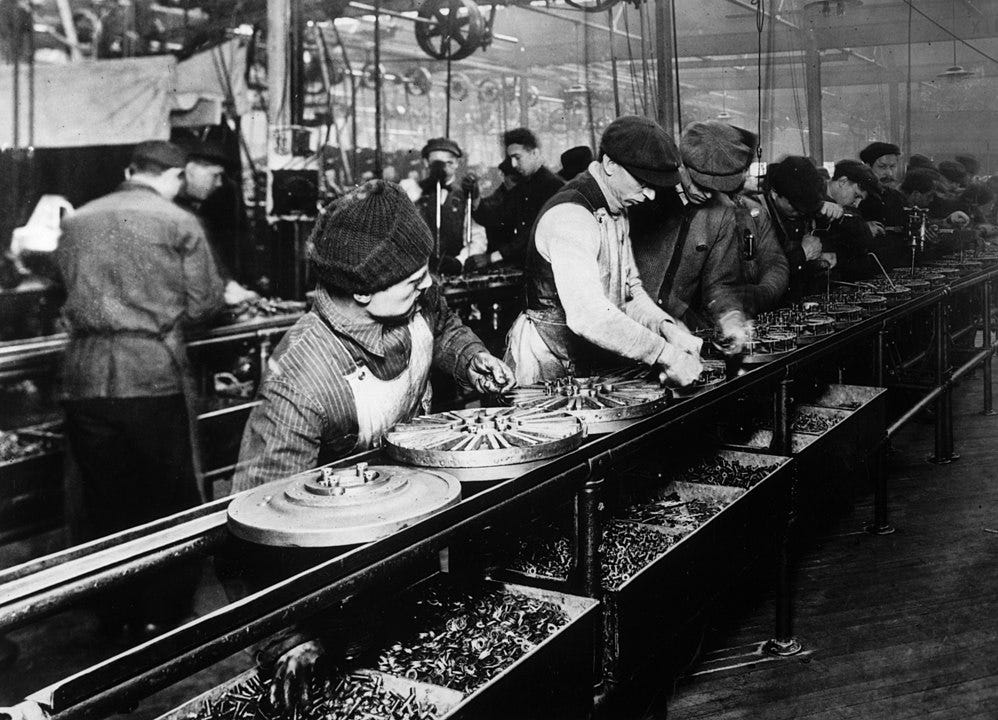Hollywood strike: Could a 'perfect storm' cause an industry 'collapse?'
Red Meat For Mushy Moderates

Surprisingly often, labor strikes are little more than an abstract concept to consumers. After all, how many of us are directly affected when there is a work stoppage at Starbucks or at a state prison? But sometimes consumers feel it right where it hurts, as when UPS drivers go on strike (it could happen soon), delaying delivery of important packages and potentially costing the U.S. economy billions of dollars.
I went to university in Canada and recall a postal strike in 1981 that lasted six weeks. In those days, we were enormously dependent on paper mail delivery, so much so that I could scarcely believe Prime Minister Pierre Trudeau and the House of Commons actually tolerated it. Such an extended action would be unthinkable in the United States, though there was an illegal wildcat postal strike here that lasted a few days in 1970. If that postal strike had lasted as long as the one in Canada, I daresay President Nixon would have called out the National Guard to deliver the mail and stave off economic ruin.
Now we have the prospect of a work stoppage that could last much longer than the Canadian postal strikes. The labor union representing Hollywood screenwriters, the Writers Guild, went on strike in May. They were joined by others, including the Screen Actors Guild, earlier this month.
Anyone who consumes content on TV and the movies will feel this one, though in most cases, not right away. Because television and film production is a time-consuming and complicated process, there is a lag between when the work stops and when the content drops and when it is depleted. The only effect I’ve felt so far is that some of the nightly and weekly talk shows that require timely comedic writing have all but halted. For example, I haven’t seen any new episodes of the late night shows on ABC, CBS or NBC since April. Ditto two weekly shows that are always good for a few laughs: HBO’s This Week Tonight with John Oliver and Real Time With Bill Maher.
So what are main issues of contention between the big media companies and their workers? It’s complicated, but as you might expect, it boils down to money and job protections. For a terrific explanation, click on the screengrab below to see NBC economic analyst and nerd-in-residence Steve Rattner explain, with his trademark charts, precisely what’s at stake:
The unions want an 11% rate increase and employers have offered only 5%. If that were the only bone of contention, it wouldn’t be a heavy lift to bridge the gap. But two other major issues stand squarely in the way:
1. Residuals » Traditionally, when a successful show ended and went into syndication, it would air on an over-the-air or cable channel that would typically pay royalties back to the creative community, with the amount increasing each time it’s shown and every time a new channel picked up the series or film. But that kind of syndication is becoming less common as cable television dies a slow death and is replaced by corporate streaming platforms. By contrast, streaming payments are static and based largely on the number of subscribers. That means less money for the writers and actors — and also less money for the corporate content providers.
FUN FACT: Residuals also prompted the last strike involving both the writers and actors unions in 1960, when the SAG president was a then-B-list movie actor named Ronald Reagan. Ironically, Reagan not only was elected president of the United States 20 years later but one of his legacies as chief executive was to break a federal labor union by firing its air-traffic controllers, who were staging an illegal strike.
2. Artificial Intelligence » Looming over the discussions is something potentially more threatening than wages or royalties. Artificial intelligence (AI) could be deployed to create scripts without the necessity of paying writers. AI could also be used to create content with fake actors voicing lines written by the aforementioned automated scribes.
Writers and actors are understandably concerned about being replaced, in effect, by robots. While they have my sympathy, negotiations to limit the use of technology in order to protect jobs is a fool’s errand. Imagine if automotive workers had organized to stop the development of the assembly lines. That manufacturing innovation no doubt cost many workers their jobs, but it also enabled Ransom Olds, who created and patented the assembly line in 1901, to increase Oldsmobile output by 500 percent in one year, thus improving quality and lowering prices to the point that cars became more affordable for the emerging middle class.
However, the unions also rightly object to the generation of content, through AI, that uses the likeness or ideas of writers and actors, unless they are fairly compensated for such use. This strikes me as fair, though details would have to be hammered out. To wit, the unions are taking an extreme position. According to the Wall Street Journal, they are “spending negotiating capital to prevent filmmakers from digitally fixing an image after the day of paid shooting.” Get real.
The larger question is what kind of damage this strike will inflict on the industry. In the past, these work stoppages have been resolved and proved to be little more than an annoyance for audiences. And they mostly occurred during a stable era for the business. Currently, the streaming industry is in free fall, cable television is moribund and media titans such as Disney are laying off workers and high-priced talent alike.
Media mogul Barry Diller, the former chairman and chief executive of Paramount Pictures, told CBS a “perfect storm” is brewing and that “the strikes could potentially cause an ‘absolute collapse’ of the industry if a settlement is not reached before September.”
“Next year, there's not going to be many programs for anybody to watch,” he said. “You’re going to see subscriptions get pulled, which is going to reduce the revenue of all these movie companies, television companies. The result of which is that there will be no programs. And it’s just the time the strike is settled, that you want to gear back up, there won't be enough money. So this actually will have devastating effects if it is not settled soon.”
A good friend whom I’ve known since eighth grade is an active actor, SAG member and acting coach. He tells me he expects the strike to last into October. I hope he is wrong.






Nicely done. ~Jean